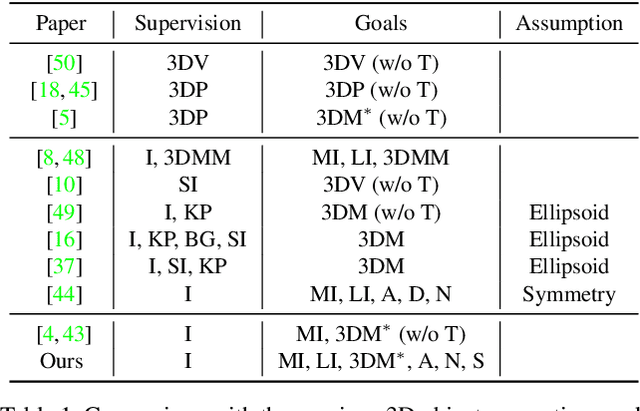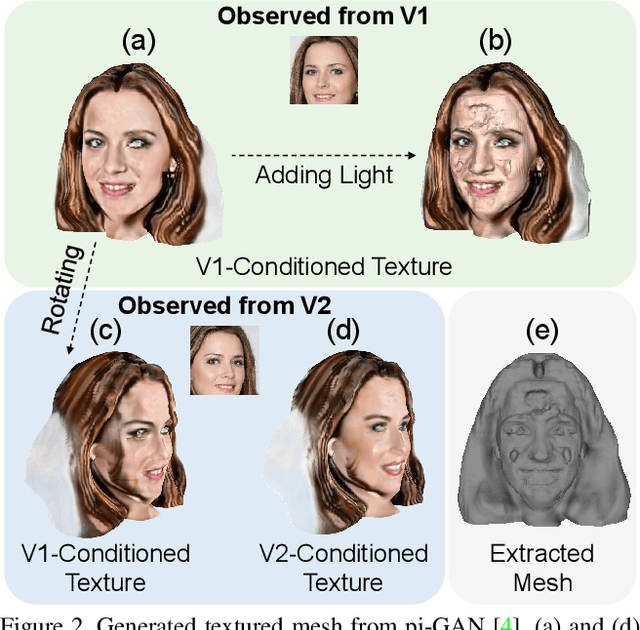Hojun Cho
Talk to Your Slides: Efficient Slide Editing Agent with Large Language Models
May 16, 2025Abstract:Existing research on large language models (LLMs) for PowerPoint predominantly focuses on slide generation, overlooking the common yet tedious task of editing existing slides. We introduce Talk-to-Your-Slides, an LLM-powered agent that directly edits slides within active PowerPoint sessions through COM communication. Our system employs a two-level approach: (1) high-level processing where an LLM agent interprets instructions and formulates editing plans, and (2) low-level execution where Python scripts directly manipulate PowerPoint objects. Unlike previous methods relying on predefined operations, our approach enables more flexible and contextually-aware editing. To facilitate evaluation, we present TSBench, a human-annotated dataset of 379 diverse editing instructions with corresponding slide variations. Experimental results demonstrate that Talk-to-Your-Slides significantly outperforms baseline methods in execution success rate, instruction fidelity, and editing efficiency. Our code and benchmark are available at https://anonymous.4open.science/r/talk-to-your-slides/
Evaluating and Improving Automatic Speech Recognition Systems for Korean Meteorological Experts
Oct 24, 2024



Abstract:This paper explores integrating Automatic Speech Recognition (ASR) into natural language query systems to improve weather forecasting efficiency for Korean meteorologists. We address challenges in developing ASR systems for the Korean weather domain, specifically specialized vocabulary and Korean linguistic intricacies. To tackle these issues, we constructed an evaluation dataset of spoken queries recorded by native Korean speakers. Using this dataset, we assessed various configurations of a multilingual ASR model family, identifying performance limitations related to domain-specific terminology. We then implemented a simple text-to-speech-based data augmentation method, which improved the recognition of specialized terms while maintaining general-domain performance. Our contributions include creating a domain-specific dataset, comprehensive ASR model evaluations, and an effective augmentation technique. We believe our work provides a foundation for future advancements in ASR for the Korean weather forecasting domain.
Single Ground Truth Is Not Enough: Add Linguistic Variability to Aspect-based Sentiment Analysis Evaluation
Oct 13, 2024



Abstract:Aspect-based sentiment analysis (ABSA) is the challenging task of extracting sentiment along with its corresponding aspects and opinions from human language. Due to the inherent variability of natural language, aspect and opinion terms can be expressed in various surface forms, making their accurate identification complex. Current evaluation methods for this task often restrict answers to a single ground truth, penalizing semantically equivalent predictions that differ in surface form. To address this limitation, we propose a novel, fully automated pipeline that augments existing test sets with alternative valid responses for aspect and opinion terms. This approach enables a fairer assessment of language models by accommodating linguistic diversity, resulting in higher human agreement than single-answer test sets (up to 10%p improvement in Kendall's Tau score). Our experimental results demonstrate that Large Language Models (LLMs) show substantial performance improvements over T5 models when evaluated using our augmented test set, suggesting that LLMs' capabilities in ABSA tasks may have been underestimated. This work contributes to a more comprehensive evaluation framework for ABSA, potentially leading to more accurate assessments of model performance in information extraction tasks, particularly those involving span extraction.
3D-GIF: 3D-Controllable Object Generation via Implicit Factorized Representations
Mar 12, 2022



Abstract:While NeRF-based 3D-aware image generation methods enable viewpoint control, limitations still remain to be adopted to various 3D applications. Due to their view-dependent and light-entangled volume representation, the 3D geometry presents unrealistic quality and the color should be re-rendered for every desired viewpoint. To broaden the 3D applicability from 3D-aware image generation to 3D-controllable object generation, we propose the factorized representations which are view-independent and light-disentangled, and training schemes with randomly sampled light conditions. We demonstrate the superiority of our method by visualizing factorized representations, re-lighted images, and albedo-textured meshes. In addition, we show that our approach improves the quality of the generated geometry via visualization and quantitative comparison. To the best of our knowledge, this is the first work that extracts albedo-textured meshes with unposed 2D images without any additional labels or assumptions.
 Add to Chrome
Add to Chrome Add to Firefox
Add to Firefox Add to Edge
Add to Edge